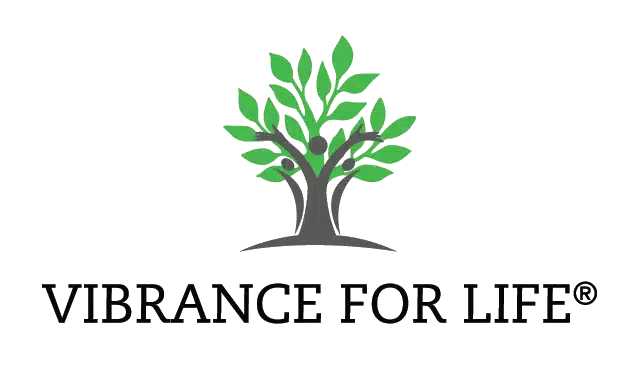Featured
Stress Management: How To Reduce And Relieve Stress
In today’s fast-paced world, stress has become an unwelcome companion for many. Right now, people seem to have a constant feeling of angst. There is so much uncertainty in the world. Even people who are “managing stress” or say they don’t feel stressed, stress incites neurochemical and hormonal changes that play in the background like the apps on your computer. You may not realize it is affecting you because you go on with your life, however it can drain your battery and wreak havoc with your immune, hormone and nervous system.
While some stress can be motivating, chronic stress can have detrimental effects on our physical and mental health. Let’s explore various strategies to manage stress effectively, focusing first on innovative approaches you may not have considered, followed by well-established techniques
Understanding Stress
Stress can be defined as a physical, mental, or emotional factor that causes bodily or mental tension.¹ It is our body’s natural response to challenging or demanding situations, triggering the “fight or flight” response and releasing hormones like cortisol and neurotransmitters like adrenaline.² While this response can be helpful in short bursts, prolonged activation can lead to various health issues, affecting our physical health, mental well-being, and emotional state.³
- Physical stress can manifest as muscle tension, rapid heartbeat, or digestive issues- heartburn, reflux, constipation, diarrhea, poor digestion, irritable bowel etc.
- Mental stress might appear as difficulty concentrating, racing thoughts, or forgetfulness.
- Emotional stress often presents as irritability, anxiety, depression or mood swings.
- Any combination can present as brain fog, fatigue, weight gain, weight loss, and hormone disruptions.
Novel Approaches to Stress Management
HeartMath Techniques
HeartMath is a science-based approach that focuses on the connection between the heart and brain. It uses heart rate variability (HRV) biofeedback to help individuals achieve a state of coherence, where the heart, mind, and emotions are in sync.⁴
One popular HeartMath technique is the Quick Coherence Technique:
- Focus your attention on the area around your heart.
- Imagine your breath flowing in and out of your heart area.
- Evoke a regenerative feeling, such as appreciation or care for someone, some place or something in your life.
Regular practice of HeartMath techniques has been shown to reduce stress, improve cognitive function, and enhance emotional well-being.⁵
Vagal Nerve Exercises
The vagus nerve is a key component of the parasympathetic nervous system, which helps counteract the stress response. It is the part of the nervous system for rest, digest, repair, rejuvenate and reproduce. Stimulating the vagus nerve can activate the relaxation response, reducing stress and anxiety.⁶
Some simple vagal exercises include:
- Deep, slow breathing: Inhale for 4 counts, hold for 4, exhale for 6.
- Humming or chanting: The vibrations stimulate the vagus nerve.
- Cold water face immersion: Splash cold water on your face or take a cold shower.
- Gargling: Gargle with water for 30 seconds to a minute.
Incorporating these exercises into your daily routine can help improve your body’s stress response over time.⁷
Forest Bathing (Shinrin-Yoku)
This Japanese practice involves immersing oneself in nature, using all five senses. Research has shown that spending time in forests can lower cortisol levels, reduce blood pressure, and improve overall well-being.⁸ To practice forest bathing:
- Find a suitable forest or natural area.
- Leave behind your phone and other distractions.
- Wander slowly, allowing your body to guide you.
- Engage all your senses – listen to the sounds, feel the textures, smell the air.
- Sit quietly and observe your surroundings.
Even if you can’t access a forest regularly, spending time in any green space can have similar benefits.
Adaptogenic Herbs
Adaptogens are natural substances that help the body adapt to stress and exert a normalizing effect on bodily processes. Some popular adaptogenic herbs include:
- Ashwagandha: Known for its ability to reduce cortisol levels and anxiety.⁹
- Rhodiola Rosea: May help combat fatigue and improve cognitive function under stress.¹⁰
- Holy Basil (Tulsi or Ocimum sanctum): Supports overall stress management and immune function.¹¹
While these herbs can be beneficial, it’s important to consult with a healthcare professional before adding them to your regimen, especially if you’re taking other medications.
Supplements for Stress Relief
Certain supplements have shown promise in managing stress. One notable example is L-theanine, an amino acid found in tea leaves. My patients love this amino acid to help them fall asleep, helps them go back to sleep if they wake up and if they take it throughout the day, they experience calm focus and reduced anxiety. L-theanine has been found to promote relaxation without causing drowsiness. It may help reduce stress by:
- Increasing alpha brain waves, associated with a state of wakeful relaxation.
- Potentially lowering cortisol levels during stressful events.
- Improving sleep quality, which indirectly helps with stress management.¹²
Other supplements that may help with stress include:
- Magnesium: Often called the “relaxation mineral,” it can help reduce muscle tension and promote calm.¹³
- Omega-3 fatty acids: May help reduce inflammation and support brain health.¹⁴
- B-complex vitamins: Essential for nervous system function and energy production.¹⁵
As with herbal supplements, always consult a healthcare provider before starting any new supplement regimen.
Common Stress Management Techniques
While the novel approaches above can provide fresh tools for your stress-management toolkit, it’s important not to overlook tried-and-true methods that have stood the test of time:
Regular Exercise
Physical activity is one of the most effective stress relievers. It helps to burn off nervous energy and releases endorphins, the body’s natural mood elevators.¹⁶ Aim for at least 30 minutes of moderate exercise most days of the week.
Mindfulness and Meditation
Practicing mindfulness helps you stay grounded in the present moment, reducing anxiety about the future or regrets about the past. Regular meditation can lower cortisol levels and improve overall well-being.¹⁷
Healthy Diet
A balanced diet rich in fruits, vegetables, whole grains, and lean proteins can help your body cope better with stress. Avoid excessive caffeine, alcohol and sugar, which can increase anxiety and mood swings.¹⁸
Adequate Sleep
Quality sleep is crucial for stress management. Aim for 7-9 hours of sleep per night and establish a consistent sleep schedule.¹⁹
Time Management
Organizing your time effectively can reduce feelings of being overwhelmed. Use tools like calendars, to-do lists, and time-blocking techniques to prioritize tasks and manage your day more efficiently.²⁰
Conclusion
Managing stress effectively requires a multifaceted approach. By combining innovative techniques like HeartMath, vagal exercises, and forest bathing with traditional methods such as exercise, meditation, and proper nutrition, you can create a comprehensive stress management strategy tailored to your needs.
Remember, what works best can vary from person to person. Experiment with different techniques and find the combination that works best for you. Consider the online program Tense to Tranquil for simple strategies on how to get unstuck, take action and the foods, supplements and practices to keep you calm and centered. Consistency is key – make stress management a regular part of your routine rather than a reactive measure.
Lastly, if you’re experiencing chronic or severe stress, don’t hesitate to seek professional help. A mental health professional can provide personalized strategies and support to help you navigate challenging times. Anxiety can also be the result of hormone changes so consulting with a hormone expert can pinpoint the root cause.
By taking proactive steps to manage stress, you’re investing in your overall health and well-being, paving the way for a more balanced and fulfilling life.
References
1. American Psychological Association. Stress. In: APA Dictionary of Psychology. https://dictionary.apa.org/stress. Accessed August 26, 2024.
2. Yaribeygi H, Panahi Y, Sahraei H, Johnston TP, Sahebkar A. The impact of stress on body function: A review. EXCLI J. 2017;16:1057-1072. Published 2017 Jul 21. doi:10.17179/excli2017-480
3. McEwen BS. Central effects of stress hormones in health and disease: Understanding the protective and damaging effects of stress and stress mediators. Eur J Pharmacol. 2008;583(2-3):174-185. doi:10.1016/j.ejphar.2007.11.071
4. McCraty R, Zayas MA. Cardiac coherence, self-regulation, autonomic stability, and psychosocial well-being. Front Psychol. 2014;5:1090. Published 2014 Sep 29. doi:10.3389/fpsyg.2014.01090
5. McCraty R, Shaffer F. Heart rate variability: new perspectives on physiological mechanisms, assessment of self-regulatory capacity, and health risk. Glob Adv Health Med. 2015;4(1):46-61. doi:10.7453/gahmj.2014.073
6. Breit S, Kupferberg A, Rogler G, Hasler G. Vagus Nerve as Modulator of the Brain-Gut Axis in Psychiatric and Inflammatory Disorders. Front Psychiatry. 2018;9:44. Published 2018 Mar 13. doi:10.3389/fpsyt.2018.00044
7. Gerritsen RJS, Band GPH. Breath of Life: The Respiratory Vagal Stimulation Model of Contemplative Activity. Front Hum Neurosci. 2018;12:397. Published 2018 Oct doi:10.3389/fnhum.2018.00397
8. Li Q. Effect of forest bathing trips on human immune function. Environ Health Prev Med. 2010;15(1):9-17. doi:10.1007/s12199-008-0068-39. Chandrasekhar K, Kapoor J, Anishetty S. A prospective, randomized double-blind, placebo-controlled study of safety and efficacy of a high-concentration full-spectrum extract of ashwagandha root in reducing stress and anxiety in adults. Indian J Psychol Med. 2012;34(3):255-262. doi:10.4103/0253-7176.106022
10. Olsson EM, von Schéele B, Panossian AG. A randomised, double-blind, placebo-controlled, parallel-group study of the standardised extract shr-5 of the roots Rhodiola rosea in the treatment of subjects with stress-related fatigue. Planta Med. 2009;75(2):105-112. doi:10.1055/s-0028-1088346
11. Cohen MM. Tulsi – Ocimum sanctum: A herb for all reasons. J Ayurveda Integr Med. 2014;5(4):251-259. doi:10.4103/0975-9476.146554
12. Hidese S, Ogawa S, Ota M, et al. Effects of L-Theanine Administration on Stress-Related Symptoms and Cognitive Functions in Healthy Adults: A Randomized Controlled Trial. Nutrients. 2019;11(10):2362. Published 2019 Oct 3. doi:10.3390/nu11102362
13. Boyle NB, Lawton C, Dye L. The Effects of Magnesium Supplementation on Subjective Anxiety and Stress-A Systematic Review. Nutrients. 2017;9(5):429. Published 2017 Apr 26. doi:10.3390/nu9050429
14. Kiecolt-Glaser JK, Belury MA, Andridge R, Malarkey WB, Glaser R. Omega-3 supplementation lowers inflammation and anxiety in medical students: a randomized controlled trial. Brain Behav Immun. 2011;25(8):1725-1734. doi:10.1016/j.bbi.2011.07.229
15. Young LM, Pipingas A, White DJ, Gauci S, Scholey A. A Systematic Review and Meta-Analysis of B Vitamin Supplementation on Depressive Symptoms, Anxiety, and Stress: Effects on Healthy and ‘At-Risk’ Individuals. Nutrients. 2019;11(9):2232. Published 2019 Sep 16. doi:10.3390/nu11092232
16. Salmon P. Effects of physical exercise on anxiety, depression, and sensitivity to stress: a unifying theory. Clin Psychol Rev. 2001;21(1):33-61. doi:10.1016/s0272- 7358(99)00032-x
17. Goyal M, Singh S, Sibinga EM, et al. Meditation programs for psychological stress and well-being: a systematic review and meta-analysis. JAMA Intern Med. 2014;174(3):357-368. doi:10.1001/jamainternmed.2013.13018
18. Kiecolt-Glaser JK. Stress, food, and inflammation: psychoneuroimmunology and nutrition at the cutting edge. Psychosom Med. 2010;72(4):365-369. doi:10.1097/PSY.0b013e3181dbf489
19. Åkerstedt T, Knutsson A, Westerholm P, Theorell T, Alfredsson L, Kecklund G. Sleep disturbances, work stress and work hours: a cross-sectional study. J Psychosom Res. 2002;53(3):741-748. doi:10.1016/s0022-3999(02)00333-1
20. Häfner A, Stock A. Time management training and perceived control of time at work. J Psychol. 2010;144(5):429-447. doi:10.1080/00223980.2010.496647
 Lorraine Maita, MD, CEO & Founder of The Feel Good Again Institute and Vibrance for life and widely known as “The Hormone Harmonizer”, has helped thousands of people ditch fatigue, brain fog, mood swings, lose weight, and achieve balanced hormones so they Feel Good Again.
Lorraine Maita, MD, CEO & Founder of The Feel Good Again Institute and Vibrance for life and widely known as “The Hormone Harmonizer”, has helped thousands of people ditch fatigue, brain fog, mood swings, lose weight, and achieve balanced hormones so they Feel Good Again.
She is a recognized and award-winning triple board certified, holistic, functional, integrative and anti-aging physician, speaker and author, and has been featured in ABC News, Forbes, WOR Radio and many media outlets to spread the word that you can live younger and healthier at any age.






